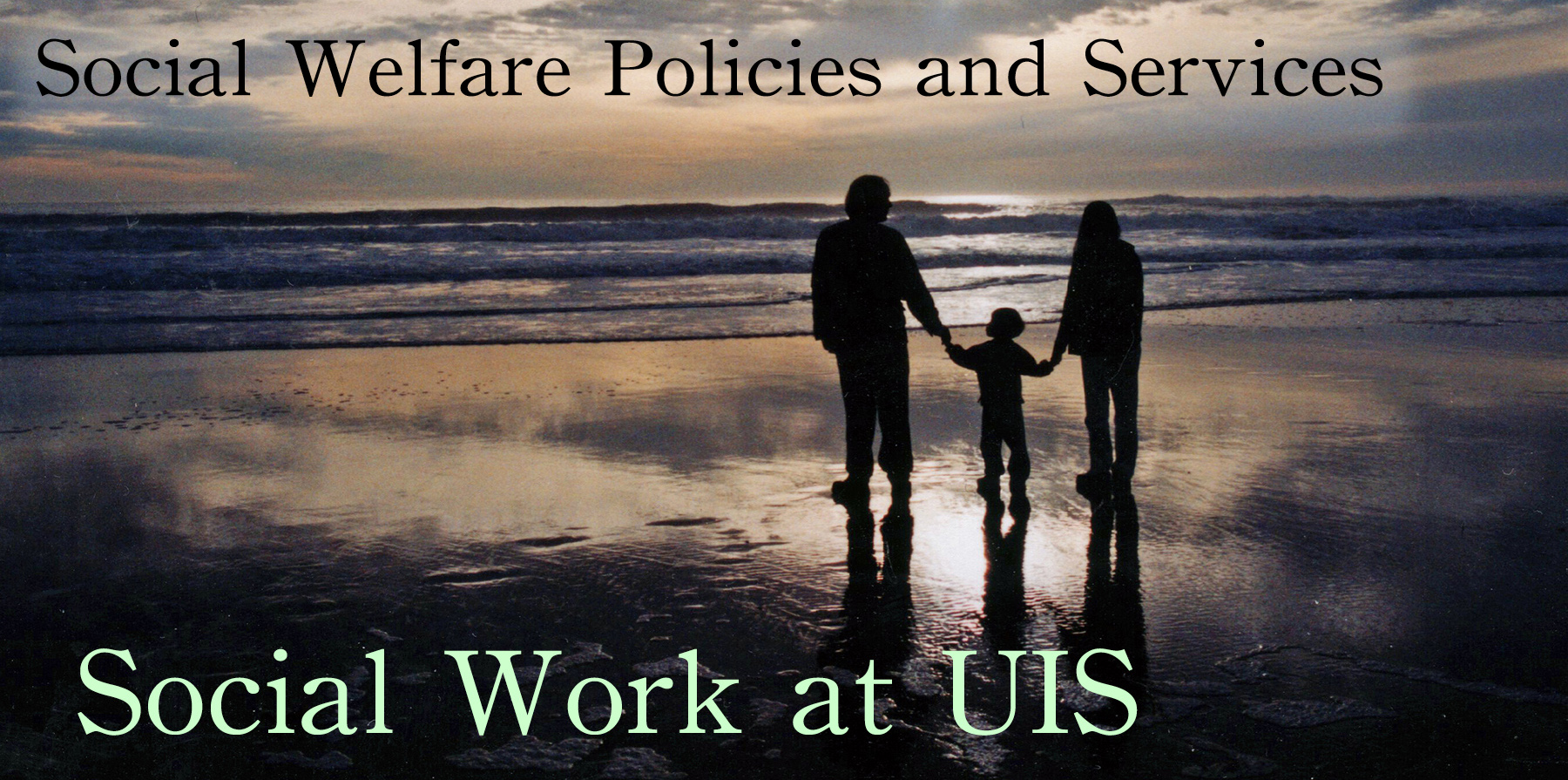Class session lasts from April 20 at 6:00 p.m. to April 28 at 5:59pm, but the discussion boards will not be graded until after May 3rd.
This page describes what you should do in this second session.
What must you read this week?
This week your main objective is to learn a little about social welfare in an international perspective, by getting familiar with the work of the United Nations High Commission for Refugees and the Agenda 2030 Sustainable Development Goals.

Begin by reading a recent Refugee Brief, and I will suggest you read the one from 20 November, 2020. Then, having read that, look at some of the news and stories at the UNHCR that interest you. Spend less than half-an-hour on this. I think in 20 minutes you can become familiar with what is going on in the world in terms of displacement of humans due to war, persecution, and natural disasters.
Next, I would like you to become familiar with what the United Nations High Commission for Refugees does. You can find out by looking at the information on this “What we do” page. The six main elements of their work are: Protection, Shelter, Advocacy, Health, Safeguarding Individuals, and Global Needs Assessment. You really only need about ten minutes to become familiar with the fact that there is a UNHCR, and they serve refugees and displaced persons in a variety of ways.
Finally on the topic of refugees, I want you to spend about 15 minutes reading a couple short articles about the 1951 Refugee Convention and the 1967 protocol. These are treaties, and according to the USA Constitution, treaties are the highest law of the land (any federal laws or rules that violate treaties are nullified by the treaties). Spend maybe five minutes reading the overview of the 1951 Refugee Convention and the text of the convention at the UNHCR website (note that the convention is grounded in the Universal Declaration of Human Rights, Article 14). After spending about five minutes looking UNHCR overview of the 1951 Refugee Convention and 1967 Protocol, I want you to put about ten minutes of your time into reading the International Refugee Protection System Fact Sheet from April 1, 2019 put out by the National Immigration Forum. Take note of where the refugees come from, and where they go.
Having finished reviewing the UNHCR and some of the things going on in the world in terms of refugees, it is time to turn your attention to the Universal Declaration of Human Rights. You may remember that social work professional ethics are based on some core values, such as service, social justice, dignity and worth of the person, importance of human relationships, integrity, and competence. The core value of the dignity and worth of the person is closely connected to the concept of human rights. All social workers should be familiar with the concept of human rights, and be aware of the Universal Declaration of Human Rights, which is a foundational document in the field of human rights and the value of “dignity and worth of the person.” Therefore, you will now read the Universal Declaration. There are 30 articles in the UDHR, and I want you to pay close attention to the preamble, the 1st Article, and Articles 2, 14, 16, 22, 23, 24, 25, and 27. Those nine articles are the most important of the 30 for the profession of social work. The 30 articles are read aloud on a YouTube video in a little over 11 minutes, so adding in the preamble, I'm sure you can read this all in 15 minutes.
Having learned about the Universal Declaration of Human Rights and the Refugee situation, the final international welfare and services topic to cover in this session are the Sustainable Development Goals of the Agenda 2030. What are these? I want you to read and find out about them. The United Nations has a website devoted to the Sustainable Development Goals, so you can go to that site and read about the 17 Sustainable Development Goals, giving attention to Goal 1 Ending Poverty, Goal 2 Zero Hunger, Goal 8 Decent Work and Economic Growth, Goal 11 Sustainable Cities and Communities, and Goal 16 Peace, Justice and Strong Institutions. It may take you about 30 minutes to look over these materials and become familiar with the SDGs.
Having looked at these goals, give yourself about ten minutes to read an example of how the conservative Heartland Institute (funded by the usual conservative supporters such as ExxonMobil, Koch Industries, Philip Morris, and the Mercer Family) opposes the Agenda 2030.
Then, it will take you about five minutes to read one article supporting the Agenda 2030, such as this article by Nina Besser Doorley at the International Women’s Health Coalition.
After you have read these things, you need to watch the one-hour documentary on the homeless situation in Seattle (and Providence, RI) Seattle Is Dying. After you watch it, you have some reading assignments related to it I want you to read some of the critiques of the documentary, including those offered by Dominic Holden at Crosscut, and Charles Mudede at The Stranger, and Kayla Blau at the South Seattle Emerald, and Tyrone Beason (from when he was with the Seattle Times) and some of the reader comments reacting to Tyrone Beason’s critique of the documentary. The documentary has received a lot of press. As you read the critiques, I want you to bear in mind the logical fallacy of ad hominum attacks. I of course agree with some of the criticisms of the documentary (which is why I want you to read them), but the documentary makes many important points, and I do not think that all these points are addressed in the critiques. And, among the critiques, it seemed to me some people were attacking the documentary by associating it with the ideology of the owners of the network that released it. While it is relevant to know who is supporting a source (so you can be alert to possible biases), it is logically incorrect to suggest that a claim is wrong or bad because of some characteristic of the person who makes the claim. A claim about the problem of homelessness is not wrong because it comes from a conservative person or from a person who was funded by conservative sources (but, yes, it may have a bias in favor of a conservative world-view, and it is important to be aware of that probability).
In the next session we will be discussing the case of Alejandro, which you may want to read this week:
When Alejandro was just eight months old, his parents brought him from Mexico to the United States. They were undocumented immigrants, and they never filed immigration papers because there was no visa category through which they were eligible for permanent residency.
As he grew up, Alejandro’s life was similar in many ways to that of many boys his age. He loved to play basketball and baseball, and he was good at math. Alejandro worked hard in high school, graduating near the top of his class. He dreamed of graduating from college and becoming a doctor. However, because he was an undocumented immigrant, Alejandro was not eligible for in-state tuition or any scholarships or financial aid for college. Unable to afford the education he dreamed of, Alejandro got a job working part-time cleaning a local restaurant after closing.
The owner of the restaurant knows that Alejandro is undocumented. He withholds money from Alejandro’s paycheck if he thinks Alejandro didn’t clean the restaurant fast enough. The owner also makes Alejandro buy all his own cleaning supplies. Once, Alejandro burned himself on a stove that had been left on accidentally, but the owner said that if Alejandro told anyone he was injured at work, he would be fired and reported to immigration. Alejandro has to work seven days a week and hasn’t had a vacation in three years.
One day, Alejandro went a large party to celebrate the Fourth of July. The neighbors called the police about the noise. When the police came to break up the party, they noticed Alejandro and one of his Latino friends and questioned both of them about their immigration status. Two days later, immigration authorities came to Alejandro’s house at 5:00 am and arrested him. They handcuffed him and took him to an immigration detention center. Alejandro was given an orange jumpsuit and shackles to wear, and was not allowed to go outdoors. He had no contact with his parents, who were too afraid to visit him.
After more than three months, Alejandro was taken to court, where he faced a immigration judge. He had no lawyer and had never been given legal advice on his case. The judge decided to deport him. Alejandro had lived in the United States since he was a baby. In spite of this, he was deported back to Mexico, the country where he was born. Alejandro’s parents remained behind with his younger siblings, who are all U.S. citizens. Deportation cases are very difficult to reverse, so it is unclear when or if Alejandro’s family will be reunited.
What must you watch this week?
You must watch the documentary Seattle Is Dying. In addition to the YouTube link I have just shared, you can watch it on Facebook. It is 1-hour in length.
What are the discussion questions this week?
Discussion Question 1:
Discussion Question 13-1: Check in. There are only two more weeks before our last class. Are you making plans for what you will do when the semester ends? How is your life these days? What would constitute a “perfect” day for you?
Discussion Question 2:
Discussion Question 13-2: In the session 12 reading, you encountered the idea (suggested in So, You Want to Make a Difference: Advocacy is the Key that you should become aware of an advocacy group that is working toward something you care about. Find an advocacy group that is working on something you care about, look into what they are doing, what they are trying to accomplish, and how they are going about it. Share what you find with us. Tell us about that advocacy group. Are you going to join it? Are you going to get on their e-mail mailing list? Why or why not?
Discussion Question 3:
Discussion Question 13-3: In the session 12 reading (So, You Want to Make a Difference: Advocacy is the Key) you read about the idea that every week you ought to be either: 1) writing to a policy-maker; 2) calling a policy-maker; or 3) visiting a policy-maker. Considering that almost everyone has a president, governor, and mayor, as well as a state senator and state representative, and a congressional representative and two U.S. Senators, and a ward alderman, and a county board representative, there are at least ten persons to whom you could communicate. Which of those persons would you communicate with, and what would you communicate about? Of course you would communicate about different topics, and write to different persons, but I am interested in who among your policy-makers do you feel would be easiest to approach, and on what topics would you feel most comfortable approaching them?
Discussion Question 4:
Discussion Question 13-4: In session 13, you will watch Seattle is Dying, and then you will read critiques of it after you have watched it. Let us discuss that film. What were you feeling as you watched the film? What claims did the film make that seemed believable and “true” to you, and why did those claims seem true? Were they obvious or common sense? Did the documentary provide testimony you found convincing and believable? After watching it, you read critiques. How did you feel about the film after you read the critiques? What are fair critiques of the film you accept as valid? What are some things you think the film contributes (if anything) in terms of points that are significant and important to inform our thinking about the problem of homelessness and what we might to do address it?
Discussion Question 5:
Discussion Question 13-5: In session 13, you will learn a little about refugee issues in the world today, and what the UN High Commission for Refugees is doing. After having read those assignments and learned about the international law concerning rights of seeking refuge, what do you think we should do with persons who, upon being apprehended in the United State for entering without permission or staying after the visa has expired, if they claim that they may be harmed if they return to their countries of origin? And, in comparison, how should we handle persons who present themselves at our borders, without visas or permission to enter, and at the port of entry, declare that their lives are in danger in their home country, and they wish to seek refuge in the United States? Should we keep them in a place where we can watch them (detain them), or let them roam around the United States while their case is investigated? Should we ask them to return to one of the countries they have passed through on their way to the United States, and seek refuge in those countries, and only if their asylum claims are denied in those countries (Mexico, Guatemala, etc.) should they come to our borders to seek asylum here? Do you think the United States is doing enough to help refugees in the refugee camps around the world, and are we resettling about the right number of refugees in the United States each year?
Discussion Question 6:
Discussion Question 13-6: Think about your top priorities and concerns related to problems in the world today. Your instructor thought about all the problems in the world and made a public list of matters that most bother him and stir his heart. Consider the various problems we have encountered in this class over this semester, and your other experiences of the injustices and problems in our society. What are your top five complaints about problems in the world or problems in America? What makes a problem most pressing to you, and makes you care about it more than other problems?
Discussion Question 7:
Discussion Question 13-7: Study Guide Questions for the Final Exam and Quizzes.
Discussion Question 6: review questions for final exam.
1) Did the Family Preservation and Support Services Program Act of 1993 authorize nearly $1 billion over five years to fund services to “promote family strength and stability, enhance parental functioning, and protect children,” or was that done by the Child Abuse Prevention, Adoption, and Family Services Act of 1988, or was that perhaps the work of the Child Abuse Prevention and Enforcement Act of 2000?
2) Which act had these elements:
- Revised provisions for monthly caseworkers visits to require that States take necessary steps to ensure that the total number of monthly caseworker visits to children in foster care during a fiscal year is at least 90 percent (later raised to 95 percent) of the total number of such visits that would occur during the year if each child were visited once a month while in care
- Required a State Safe and Stable Families Program plan to describe how the State identifies which populations are at the greatest risk of maltreatment and how services are targeted to them
- Revised requirements for time-limited family reunification services provided to a child removed from the child’s home and placed in out-of-home care, and to the child’s parents or primary caregiver, in order to facilitate the child’s safe, appropriate, and timely reunification with the parents or caregiver.
Required services include:
Peer-to-peer mentoring and support groups for parents and primary caregivers
Services and activities designed to facilitate visitation of children by parents and siblings
For example, was this the Child Abuse Prevention, Adoption, and Family Services Act of 1988, or perhaps the Child and Family Services Improvement and Innovation Act 2011, or even possibly the Family Preservation and Support Services Program Act of 1993, or could it be some other law?
3) Which act had these elements:
Allowed the use of Federal grants by law enforcement:
- To enforce child abuse and neglect laws, including laws protecting against child sexual abuse
- To promote programs designed to prevent child abuse and neglect
- To establish or support cooperative programs between law enforcement and media organizations to collect, record, retain, and disseminate information useful in the identification and apprehension of suspected criminal offenders
For example, might this have been the Child Abuse Prevention and Enforcement Act of 2000, or possibly the Child Protection and Foster Care Act of 2010, or maybe the Child Abuse Prevention, Adoption, and Family Services Act of 1988, or some other act?
4) Which act had these elements:
Allowed the use of Federal grants by law enforcement:
- It established a nongovernmental Advisory Board on Child Abuse and Neglect
- It created a Federal inter-agency Task Force on Child Abuse and Neglect
- It designated a full-time director of the National Center on Child Abuse and Neglect
- It created a national data collection system for child maltreatment, and had that data collection system include standardized data on false, unfounded, or unsubstantiated cases and the number of deaths due to child abuse and neglect.
- It created the National Commission on Child and Youth Deaths. That commission was charged with recommending:
- a national policy designed to reduce and prevent child and youth deaths, including more accurate reporting systems and appropriate roles for the federal government, states, and local governments and the private sector;
- revisions needed within federal laws and programs to achieve an effective federal role in preventing such deaths; and
- changes required to improve national data collection with respect to deaths.
- It broadened the scope of research conducted by (or funded by) the federal government to include investigative and judicial procedures applicable to child abuse cases and the national incidence of child abuse and neglect.
- It mandated support for National Resource Centers on child abuse and neglect
For example, might this have been the Child Abuse Prevention and Enforcement Act of 2000, or possibly the Child Protection and Foster Care Act of 2010, or maybe the Child Abuse Prevention, Adoption, and Family Services Act of 1988, or the Child and Family Services Improvement and Innovation Act 2011, or some other act?
5) In a three person household in Chicago, in which the annual household income is $12,000, and in which a single parent was caring for two children, aged 6 years-old and 9 years-old, and renting a studio apartment for about $660 per month for rent, what would be the SNAP benefit received by the family?
6) There is a situation where big business and big government and the military all have a very cozy relationship together, and the same set of people run these sectors, with generals or people in the Department of Defense also serving on the board of directors of large corporations and defense contractors and also serving as heads of government or political organizations such as the World Bank or as Secretary of Defense, etc. The military, big business, and the government maintain a “permanent war economy” with massive spending (and large and predictable profits) for military contractors and suppliers.
A 20th Century President warned that, “this conjunction of an immense military establishment and a large arms industry is new in the American Experience…. the potential for the disastrous rise of misplaced power exists and will persist.”
What is the three-word term this president used to describe this situation, and who was the president?
7) In a typical small city in central Illinois, if a family of four persons, with two adults and two children, earns an income of about $32,000 per year. They ask their social worker whether they might qualify for free or reduced-price lunches for their children. What would those children pay for their lunches at a public school? (Would they qualify for free lunches, or if they received reduced lunches what would the lunch price be, or if they don’t qualify for free or reduced lunches, you may write that they would pay the full price as determined by their local school district).
8) Among Americans aged 65 or older, how significant is Social Security as a source of income?
9) What percentage of the population is African-American or black, including those persons with mixed race who indicate that they are at least partially African-American or Black?
10) What is the incarceration rate per 100,000 in the United States?
Discussion Question 8:
Discussion Question 13-8: What kind of a society do we want?
What sort of a society do social workers strive toward as we advocate for optimal social welfare policies and services? What does a flourishing society look like? It's worth considering this question, so you can consider the ultimate ends toward which you must bend the knowledge and skills you gain in this course. For this question, we will consider some words from the theorist Rudolf Bahro, a founder of the Green Movement. Here are the passages to which I want you to respond:
Now, the problem of emancipation has been posed as a question of securing a minimum standard of existence as a precondition for emancipation, and a minimum whose level keeps rising with the progress of the forces of production (which Marx presumed in his category of the 'moral factor' in wages). We have made this not only a necessary but also a sufficient condition for human emancipation. This is not principally a theoretical question, but one of practical development: the satisfaction of material needs, the emulation of the respectable middle class, the creation in other words of the entire bourgeois way of life has tied up all of our surplus energies, all of that surplus which has been left over so to speak in the subjective sector. And of course workers have always known that as human beings they get cheated….
…linking the idea of happiness to the industrial satisfaction of needs has proven to be a dead end.
NPQ | But doesn’t ecology aim at healing that alienation?
BAHRO | Ecology challenges the human spirit to rediscover Being, but it is not the answer to man’s spiritual crisis. In fact, ecology is anthropocentric; it is man’s projection of inner crisis onto the outer world; it locates the problem not in man, but in the environment.
An ecological definition of “crisis” will inevitably lead to ecological modernization—the final imperialism of man over nature. Technological amelioration of crisis may win time against depletion of the ozone layer, but will only perpetuate the “evil” inertia of the mega-machine. Persisting in the normal life of industrial culture is enough to destroy the biosphere.
But, ecological modernization, the stage I believe we are now entering, is a necessary and unavoidable step in the process towards a break with destructive inertia. In ten years or so, I am convinced, we will see that the technological answer does not work.
NPQ | The alternative?
BAHRO | The alternative is theology, not ecology—the birth of a new Golden Age which cultivates what Russian novelist Chingiz Aitmatov calls the “divine spark” of nobility in man. In effect, the alternative is a spiritual conversion which abandons the mentality of domination by man over nature; a submission of the city of man to St. Augustine’s “City of God” where we once again realize that, to cite Augustine, “the frail and mortal objects of earth here below, the blossoms and the leaves, could not be endowed with a beauty so immaculate and so exquisitely wrought did they not issue from Divinity which endlessly pervades with its invisible and unchanging beauty of all things.”
Such a conversion is not a matter of living in poverty, though it means answering Tolstoy’s question, ”how much land does a man need?” Surely, the whole planet can- not live at the level of the American middle-class; we must turn, instead, from extensive development to quality of life.
However, I do not advocate a rejection of technology. The issue is not man’s tools, but man’s spirit. “Who is the man that uses tools?” That is the real question. The spiritual conversion I call for withdraws commitment from a system built on the fears of technologically powerful man who, because he has forgotten the Being at his center, uses science as insurance against nature instead of reconstructing God, as Einstein wanted. Einstein thought the ultimate task of science was to establish a trust in the order of the cosmos so that man would lose his destructive fear.
Here is my question for you: What is your answer to Bahro’s criticisms of our society, with the implied suggestion that much of our social welfare system is devoted to maintaining a materialistic outlook on life in which people aspire to meeting “minimum” standards of decency that keep escalating as technology raises our understanding of our perceived “needs”? Is our welfare system mistakenly pursuing the idea that industrial satisfaction of our needs will bring us happiness? What sort of a social welfare system is proposed by the suggestion that what civilization needs is a transformation away from fear and toward an “appreciation for Being”? How could a system of welfare services and policies be modified to reflect that perspective, and would that system be better than the sort of welfare system we aspire toward in mainstream (capitalist/socialist) thinking?


















































